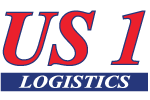The trucking and logistics industry offers a variety of career opportunities, with trucking agent jobs standing out as a dynamic and rewarding path. Trucking agents play a crucial role in connecting carriers with shippers, coordinating freight, and ensuring that goods move smoothly from one place to another. For those with strong communication skills, a knack for problem-solving, and a passion for logistics, becoming a trucking agent can be a great career choice.
play a crucial role in connecting carriers with shippers, coordinating freight, and ensuring that goods move smoothly from one place to another. For those with strong communication skills, a knack for problem-solving, and a passion for logistics, becoming a trucking agent can be a great career choice.
In this article, we’ll provide a detailed overview of what trucking agent roles entail, the skills you need to succeed, and step-by-step guidance on how to get started in this field. Whether you’re new to the industry or looking to make a career change, understanding the ins and outs of this role will help you navigate your way to success.
What is a Trucking Agent?
A trucking agent—also known as a freight broker agent, transportation agent or freight agent—plays a pivotal role in the logistics and transportation industry by acting as a middleman between shippers (the companies that need to transport goods) and carriers (trucking companies or other logistics providers). Their main responsibility is to match loads with the right carriers, ensuring that shipments are delivered efficiently, on time, and at competitive rates. By connecting these two essential parts of the supply chain, trucking agents help streamline the logistics process, creating a win-win situation for both parties.
Struggling with Sales Calls? BeASalesPro.com can help. Click Here
Key Responsibilities of a Trucking Agent
A successful trucking agent wears many hats, balancing multiple tasks that require a blend of industry knowledge, negotiation skills, and relationship-building. Here are the primary responsibilities that define the role:
- Negotiating Rates Between Shippers and Carriers
- One of the most critical tasks for a freight broker agent is to negotiate fair and competitive pricing for both the shippers and carriers. The goal is to ensure that shippers get the best possible rates for transporting their goods while also guaranteeing that carriers are adequately compensated for their services.
- Freight broker agents use their market knowledge to navigate fluctuating freight rates, seasonal demands, and carrier capacities to strike deals that benefit all parties involved.
- Coordinating Logistics for Pickup, Transportation, and Delivery
- Coordinating logistics is at the heart of what a freight agent job entails. Trucking agents are responsible for arranging the entire shipment process—from the initial pickup to the final delivery—making sure that everything runs smoothly and according to schedule.
- This involves managing multiple moving parts, including truck availability, load scheduling, and ensuring compliance with regulatory requirements, which is crucial for maintaining a seamless transportation process.
- Building Relationships with Clients and Carriers
- Building long-term relationships is key to success in any freight broker agent job. Trucking agents need to establish trust with both shippers and carriers, creating partnerships that are beneficial over the long run.
- Freight broker agents looking for opportunities to grow their network must focus on fostering strong connections that lead to repeat business and referrals. The better the relationships, the easier it becomes to negotiate favorable rates and secure priority shipping lanes.
- Tracking Shipments and Resolving Issues
- Effective tracking of shipments is vital for ensuring on-time delivery and handling any issues that may arise during transit. Freight agents must stay proactive in monitoring shipments, providing clients with real-time updates, and swiftly resolving problems like delays, route changes, or cancellations.
- This aspect of the role requires a trucking agent to be resourceful and solution-oriented, ready to adapt to changes in the transportation landscape to keep the delivery process on track.
Work Environment: Independent Contractors vs. Freight Brokerage
Trucking agents typically work either as independent contractors or as part of an established freight brokerage. Each setup has its advantages and challenges, but both offer significant opportunities for growth and earnings:
- Independent Freight Agents:
- Independent freight broker agents have the flexibility to set their own schedules and choose the clients they want to work with. They operate as their own bosses, allowing them to build their businesses from the ground up.
- This path is often chosen by experienced freight agents who have a solid network of shippers and carriers and the confidence to manage their own operations without the support of a larger brokerage.
- Freight Brokerage Companies:
- Working as part of a freight brokerage offers agents a more structured environment with access to established networks of shippers and carriers. Freight brokers looking for agents provide training, resources, and support, making it a great choice for those new to the industry or those who prefer a more guided career path.
- Freight broker agents working within these companies often benefit from agent programs, which include mentorship opportunities, business leads, and commission structures designed to motivate and reward performance.
Earning Potential and Career Rewards
 One of the biggest draws to trucking agent jobs is the earning potential. Trucking agents earn commissions based on the shipments they successfully coordinate, making this role both challenging and highly rewarding for those with the right skills. The more deals they close and the higher the volume of freight they manage, the greater their income.
One of the biggest draws to trucking agent jobs is the earning potential. Trucking agents earn commissions based on the shipments they successfully coordinate, making this role both challenging and highly rewarding for those with the right skills. The more deals they close and the higher the volume of freight they manage, the greater their income.
- Freight broker agent opportunities are abundant for those who demonstrate strong sales and negotiation skills, as these are key to closing deals and maximizing profits.
- With experience, many freight agents choose to become independent freight agents, setting their own rates and significantly increasing their income potential.
The demand for skilled agents is constantly growing, with many trucking companies looking for agents to expand their services and improve their logistics operations. This makes it an ideal time to explore career opportunities in this field.
The Competitive Edge in the Industry
To excel in this role, aspiring trucking agents should focus on continuous learning and networking. Here are some strategies to stay ahead in the competitive landscape:
- Join Industry Associations: Becoming a member of organizations like the Transportation Intermediaries Association (TIA) or National Association of Small Trucking Companies (NASTC) can provide valuable insights, networking opportunities, and industry trends that are crucial for growth.
- Leverage Technology: Utilizing digital tools and platforms designed for freight brokers can streamline the logistics process, from rate negotiation to shipment tracking, allowing agents to handle more transactions efficiently.
- Stay Updated on Market Trends: Understanding market dynamics, such as fluctuating freight rates and carrier capacity, will help agents make informed decisions that enhance profitability and client satisfaction.
Becoming a trucking agent is a rewarding career path for those who are passionate about the logistics industry, thrive in high-energy environments, and have strong negotiation and relationship-building skills. Whether you choose to work as an independent freight agent or as part of a larger freight brokerage, the opportunities in this field are vast and continually evolving.
With the right approach, focus on freight agent opportunities, and dedication to building a network of reliable carriers and loyal clients, you can pave the way for a successful career as a trucking agent. Use your skills to connect the dots between shippers and carriers, and watch your career in the freight industry grow to new heights.
Skills Needed to Succeed as a Trucking Agent
To thrive in a trucking agent role, certain skills and traits are essential. Here’s what you need to become a successful trucking agent:
- Strong Communication Skills
- Trucking agents must be excellent communicators, as they often act as the go-between for shippers, carriers, and other logistics professionals. Being able to clearly articulate needs, negotiate rates, and resolve conflicts is crucial in this role.
- Negotiation Abilities
- Negotiation is at the heart of a trucking agent’s job. You’ll need to negotiate competitive rates with carriers while ensuring the terms are favorable for the shippers. The goal is to find a balance that benefits both parties.
- Industry Knowledge
- Understanding the trucking and logistics industry is vital. This includes knowledge of freight rates, carrier capacities, market trends, and regulatory requirements. Staying updated on industry changes will help you make informed decisions.
- Attention to Detail
- Logistics is all about details. Successful trucking agents pay close attention to shipment schedules, paperwork, and load specifications to avoid costly mistakes and ensure smooth operations.
- Problem-Solving Skills
- Issues such as delays, load changes, or carrier cancellations can occur frequently. Quick thinking and resourcefulness are essential to manage these challenges and keep shipments on track.
How to Get Started as a Trucking Agent
Getting started as a trucking agent involves a combination of industry education, networking, and hands-on experience. Here’s a step-by-step guide to launching yourcareer in this field:
Step 1: Get Educated
Begin by familiarizing yourself with the basics of the logistics industry. While a formal degree is not always required, taking courses in supply chain management, logistics, or freight brokering can provide you with valuable knowledge and a competitive edge. Many institutions and online platforms offer certification programs that focus specifically on freight broker agent jobs.
Step 2: Gain Experience
Consider gaining experience by working with established freight brokers or trucking companies. This hands-on experience will help you understand the logistics process, learn how to negotiate deals, and build a network of contacts within the industry. Some freight broker agents also begin their careers in related roles, such as logistics coordinators or dispatchers, before transitioning to agent positions.
Step 3: Build a Network
Networking is critical in the freight industry. Join industry groups, attend logistics trade shows, and connect with professionals on platforms like LinkedIn. Building relationships with trucking companies looking for agents and shippers can open up opportunities and give you a solid foundation to start your own business or grow within an existing company.
Step 4: Get Licensed (If Required)
While trucking agents do not always need a license, some states and companies require freight broker agents to be licensed. Check the requirements in your area and, if necessary, obtain a broker license from the Federal Motor Carrier Safety Administration (FMCSA). This step is particularly crucial if you plan to work independently as an independent freight agent.
Step 5: Join a Freight Brokerage
For beginners, joining an established freight brokerage can be a smart move. Many freight brokerages offer agent programs that provide training, support, and access to a broad network of carriers. These programs can help you gain valuable experience while earning a commission on your shipments.
Step 6: Start Your Own Business
Once you have the necessary experience and a strong network, you might consider starting your own freight brokerage or working as an independent freight agent. Being independent allows you to have full control over your business operations, set your own hours, and maximize your earning potential by building a client base.
The Benefits of Becoming a Trucking Agent
Working as a trucking agent offers several advantages, including:
- Flexibility: Many freight agent jobs allow you to work from home or set your own schedule.
- High Earning Potential: Income is often commission-based, meaning the more successful deals you close, the more you earn.
- Entrepreneurial Opportunities: With enough experience, trucking agents can start their own businesses and grow into freight broker agents or even establish full-fledged freight brokerages.
Finding Trucking Agent Jobs
There are various ways to find trucking agent jobs and opportunities in this field:
- Online Job Portals: Websites like Indeed, LinkedIn, and specialized logistics job boards often list openings for freight broker agent jobs and independent freight agent jobs.
- Freight Brokerages: Many trucking companies and freight brokerages are looking for skilled agents to join their teams. Search for phrases like freight broker agents wanted or trucking companies looking for agents to find job listings.
- Networking: Attend logistics and transportation industry events, trade shows, and webinars to connect with professionals who may offer leads on available positions.
Trucking Agent Jobs: Keywords in Focus
Using the right keywords when searching for trucking agent jobs can make a significant difference. Here are some keywords and phrases to consider, based on industry trends:
- freight broker agent opportunities
- independent freight agent jobs
- freight broker agents wanted
- trucking agent jobs
- freight broker agent jobs
These terms will help you find specific opportunities that match your skill set and career goals.
Your Path to a Successful Career as a Trucking Agent
A career as a trucking agent is both challenging and rewarding, offering opportunities for growth, high earnings, and flexibility. With the right education, experience, and networking, you can carve out a successful path in this dynamic industry. Whether you choose to work independently or join a freight brokerage, the key to success lies in your ability to build relationships, negotiate effectively, and deliver exceptional service.
By following these steps and staying committed to continuous learning, you can make a name for yourself as a reliable and skilled trucking agent, ready to navigate the complexities of the logistics world.



Recent Comments